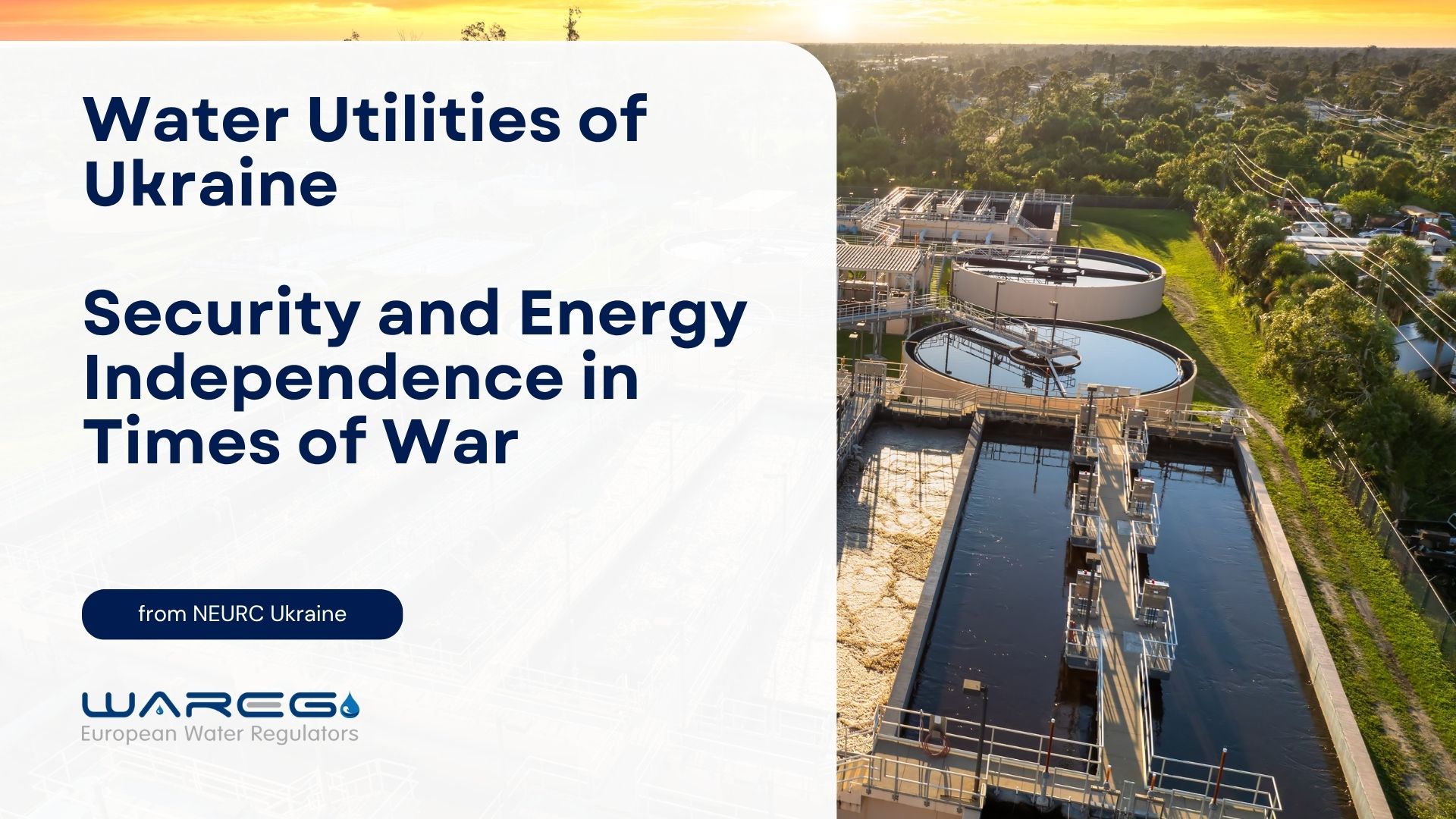
Article from the WAREG Member National Energy and Utilities Regulatory Commission of Ukraine (NEURC),
The experience of Ukrainian water utilities, which have been operating under conditions of regular power outages for more than three years, has shown that even in crisis situations, it is possible to maintain uninterrupted water supply through previously developed scenarios, backup power sources, and coordination with local authorities. This experience is particularly relevant considering the recent large-scale power outages in Europe, which caused serious disruptions to water utilities. A comparison of these two cases shows that the resilience of critical infrastructure depends not only on technical resources, but also on the system’s ability to adapt to unpredictable conditions quickly.
Under martial law in Ukraine, ensuring uninterrupted water supply has become one of the most important tasks for the country’s water utilities. Frequent damages to energy infrastructure, power cuts and blackouts have forced water utilities to seek alternative energy sources to ensure the sustainable operation of their facilities.
One of the most promising areas is the use of solar power plants (SPPs). The installation of photovoltaic modules makes it possible to provide basic electricity level to critical infrastructure. Combining SPPs with energy storages is particularly effective, as it allows for autonomous operation during emergency electricity outages.
The use of alternative energy sources allows Ukrainian water utilities not only to increase their resilience to emergencies, but also to shift gradually to energy-independent management model. This is an important step towards modernising the infrastructure of centralised water supply and sewerage facilities and strengthening the country’s energy security.
Some water utilities have already installed SPPs, which operate successfully and meet part of their electricity needs. While other water utilities actively develop project documentation and technical calculations to implement similar systems soon.
With the support of local authorities and international partners the implementation of such projects continues and number of water utilities switching to renewable energy sources is constantly growing.
At the same time, during martial law, water supply facilities become potential targets for attacks, which can lead to serious consequences (interruption of water supply, environmental pollution, sanitary and epidemiological threats, etc.). Under such conditions, ensuring reliable protection of water supply facilities is a strategic task aimed at provision of vital services during and after martial law.
To increase the resilience of water supply systems, a set of engineering protection measures must be implemented, namely: strengthening buildings and technical facilities, installing process automation systems, video surveillance systems, alarm systems, etc. In addition, water utilities must have sufficient reserve equipment in case of destruction of the operational equipment.
However, the implementation of these measures requires significant financial resources that far exceed the possibilities of water utilities, so there is an urgent need for state support, targeted financing programs and international assistance to strengthen critical infrastructure in this area.
The Regulator plays an important role in ensuring the sustainable performance of water utilities by establishing the regulatory, financial and organizational framework for their activities.
Thus, at the beginning of the war on 3 May 2022, the NEURC adopted Resolution No. 427 ‘On Approval of the Temporary Procedure for Economic Entities in the Sphere of Centralised Water Supply and Sewerage Services to Restore Facilities Damaged or Destroyed as a Result of Hostilities during the Period of Martial Law’.
This document defines a clear mechanism for financing the restoration of water supply facilities damaged because of hostilities, in particular:
- funds provided for renovations in tariffs;
- funds from investment programs.
- the possibility of allocating tariff funds after repayment of loans from international financial organisations;
- humanitarian, financial or donor assistance;
- additional sources of funding.
At the same time, it should be noted that since the beginning of the war, tariffs for the households have not been revised due to the introduction of a moratorium. This norm intended to promote social stability, at the same time has generated financial imbalances in the performance of water utilities.
In 2024, the NEURC resumed reviewing tariffs for consumer categories other than the households. This decision made it possible to compensate partially for the lack of funds for water utilities (due to the increase in the cost of electricity, materials, and repair works).
The State budget of Ukraine for 2024 and 2025 provided for subsidies to local authorities to cover the costs of water utilities partially. However, even with all sources of funding (tariff revenues, investment programs, donors’ assistance), the coverage of costs remains insufficient.
State authorities, including the NEURC, as well as international partners are working together to find a sustainable solution to ensure the financial sustainability of the water sector and water supply for households.